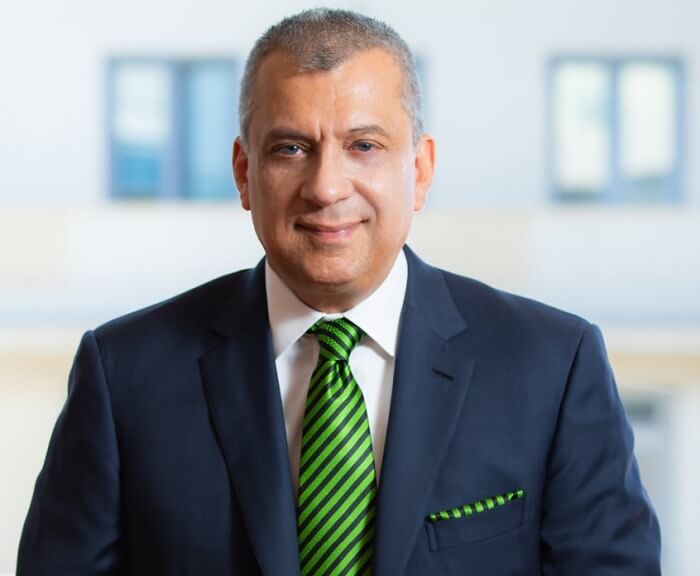If you hold a professional certificate, whether it is for information technology or language proficiency, or if you hold one for best practices in project management, you may have a Greek entrepreneur to thank.
He is Byron Nicolaides, founder and CEO of PeopleCert, the global testing company in Athens.
I sat down with him in his office in the city’s center recently to find out how a businessman in Greece could affect standards of conduct and performance around the world.
It is a tale that begins with a very poor Greek family living in Istanbul — Nicolaides uses the old name for the Turkish capital, Constantinople, where once, he said, there was a community of more than 100,000 Greeks, which has dwindled to just 2,000 today.
His parents were English teachers and had no fixed incomes. “Sometimes,” he said, “they would be paid in kind with a chicken or some bread.”
From this poverty, their son, Byron, became one of the richest men in Greece or Turkey. The company he created in 2000 is a global leader in professional and language skills certification. In 2021, it became the first Greek unicorn, reaching a capital value of more than $1 billion.
Note that his parents were English teachers — and this is important.
As I talked to Nicolaides, he was enthusiastic about the universality of English and how it has been a unifying force in the world. No worry about how English may crush marginal but traditional languages.
Nicolaides is passionate about English. Without it, he wouldn’t be the success he is today. He sees it as a great binding force, an excellent way for peoples and nations to talk to one another and to avoid friction. He wants everyone to know English.
He asked me, “What is the second-biggest language in the world?” I look at the ceiling and start thinking about two countries with large populations, India and China. I say uncertainly, “Hindi.”
With boyish happiness, Nicolaides, a young 65 of athletic build and a full head of hair, says, “Bad English.”
His enthusiasm for the English language becomes a man whose company tests English proficiency worldwide — and he lists Fortune 500 companies (including Goldman Sachs and Citibank), NASA, the FBI, the CIA, universities and other institutions.
As Nicolaides unspools his life story, one is captivated by how a poor boy of Greek heritage made his way to Bosphorus University, where he earned a degree in business administration, and then to the University of La Verne in Southern California, where he earned a master’s.
Whereas Nicolaides’ upbringing and education in Turkey might seem to be a challenge — Turkey and Greece are seldom on the best of terms — it has been a great advantage to him.
His break was in 1986, when he went to work for Merrill Lynch in Greece, becoming its highest earner. The company sought someone to open the Turkish market, offering a $5,000 to $10,000 signing bonus. Nicolaides took the bonus, and the job made him a millionaire by age 31.
At that point, he told me he had more money than he knew what to do with it, so he did the thing all Greeks with money do: “I went into shipping.”
Nicolaides spent a year in the shipping industry and hated it. He said the only thing all the other shipping millionaires could talk about was “money, money, money.” Although he has much, much more money today, he feels he is helping humanity with the educational purpose of PeopleCert.
If he lucked out beyond expectations with Merrill Lynch, he also lucked out with British Prime Minister Margaret Thatcher, albeit indirectly.
During the Falklands War, Nicolaides said, the Iron Lady was appalled at the lack of interoperability between the British forces. She demanded the introduction of the kind of best practices and certification which later became a pillar of PeopleCert.
Thatcher’s requirement was developed by a British company in which Nicolaides had an investment. Later, he bought that company, and PeopleCert became unstoppable: It has certified 7 million people worldwide and is growing at 36 percent a year.
Reflecting on this odyssey by a golden Greek, I realize that native English speakers start with a huge advantage in that the world is open in a way that it isn’t to those who don’t speak English.
When I first visited Athens in the 1960s, getting around depended on finding an English speaker. They were few and far between. Today, everyone seems to speak English, and well.


